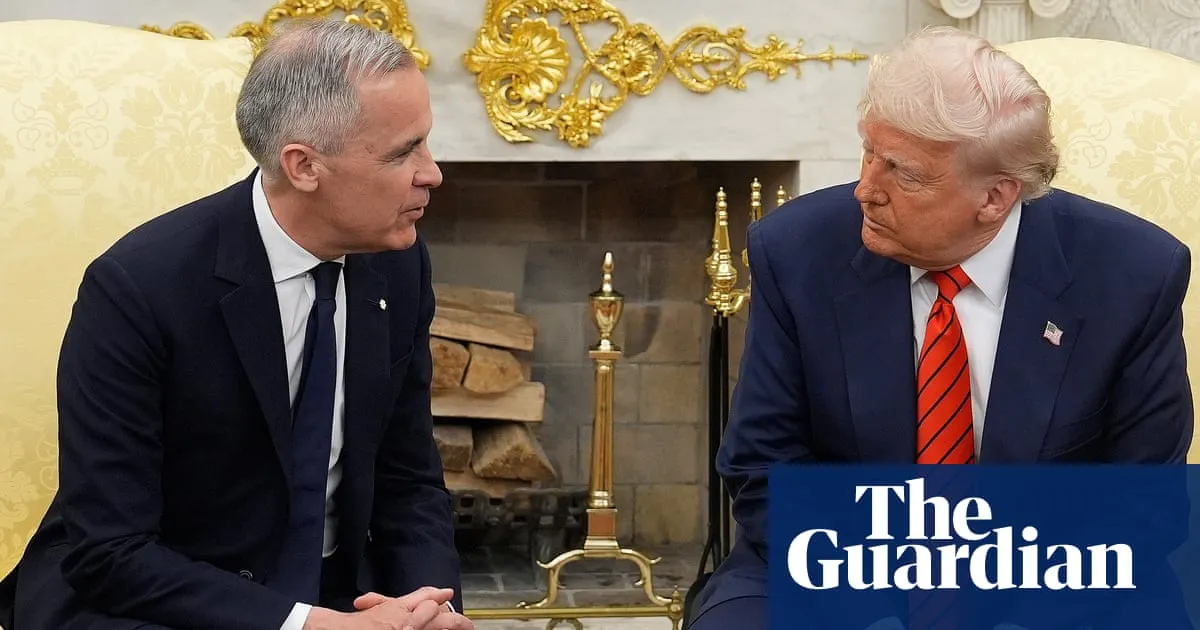
In a surprising turn of events, Donald Trump expressed his desire to maintain a friendly relationship with Canada during his first meeting with Prime Minister Mark Carney following the recent federal election. The meeting, held in the Oval Office, allowed Trump to commend Carney for his remarkable political comeback, labeling it as one of the “greatest political comebacks of all time.” Trump characterized the prime minister’s visit as “an honour” for the White House, signaling a potential thaw in the previously tense relations between the two nations.
This amicable tone stands in stark contrast to Trump’s previous hostile rhetoric towards Canada. Over recent months, he had engaged in a trade war against the country, criticized Carney’s predecessor, Justin Trudeau, and made alarming threats aimed at undermining Canada’s economy. The meeting marked a significant shift, with both leaders seemingly opting for diplomacy over conflict. Carney returned the compliment by calling Trump a “transformational president” focused on economic issues, while firmly dismissing any notion of Canada becoming the 51st state of the United States—a proposal Trump has floated in the past.
During their discussion, Carney made it clear that Canada would never consider joining the U.S. as the 51st state. “As you know from real estate, there are some places that are never for sale,” Carney asserted. Trump humorously acknowledged this point, stating, “Having met with the owners of Canada over the course of the campaign … it’s not for sale.” Carney smiled and reiterated, “Won’t be for sale, ever,” to which Trump responded with a light-hearted, “Never say never.” This exchange highlighted the importance of maintaining Canadian sovereignty amidst ongoing diplomatic negotiations.
The meeting was closely monitored, reflecting the delicate nature of U.S.-Canada relations, particularly in terms of trade. Just before the summit, Trump took to social media to reiterate his desire to work alongside Carney, though he revived a previously debunked claim that the U.S. is “subsidizing Canada by $200 billion dollars a year” while providing “FREE military protection.” Trump emphasized that while Canada may need various resources from the U.S., he only seeks their friendship.
Carney’s federal election campaign was largely built around a patriotic defiance against Trump’s threats to Canadian sovereignty. He has consistently accused Trump of attempting to “break” Canada for his gain. During the meeting, the two leaders discussed the USMCA free trade agreement, with Trump expressing interest in renegotiating key aspects of the deal, calling the previous agreement, NAFTA, the “worst in the history of the world.”
Despite Trump’s firm stance against Canadian cars and steel, Carney pushed back on Trump’s negative characterization of the current trade deal, suggesting that existing agreements provide a framework for future discussions. The meeting included key Canadian trade and diplomatic officials, such as International Trade Minister Dominic LeBlanc and Foreign Affairs Minister Mélanie Joly, emphasizing the importance of a unified approach to trade negotiations.
Before the meeting, Canadian provincial leaders, including Ontario’s Premier Doug Ford, expressed their frustrations with Trump’s trade policies. Ford criticized Trump’s dismissive comments about Canada, highlighting that the U.S. relies on Canadian resources such as potash, nickel, and uranium. Ford, who has taken on a populist conservative stance, indicated that U.S. governors increasingly disagree with Trump’s approach, especially as tariffs begin to impact American consumers.
As the political landscape evolves, both nations must navigate the complexities of their intertwined economies, which boast over C$1 trillion (US$725 billion) in trade. With upcoming midterm elections on the horizon, many are eager to see how these diplomatic relations will unfold in the future.